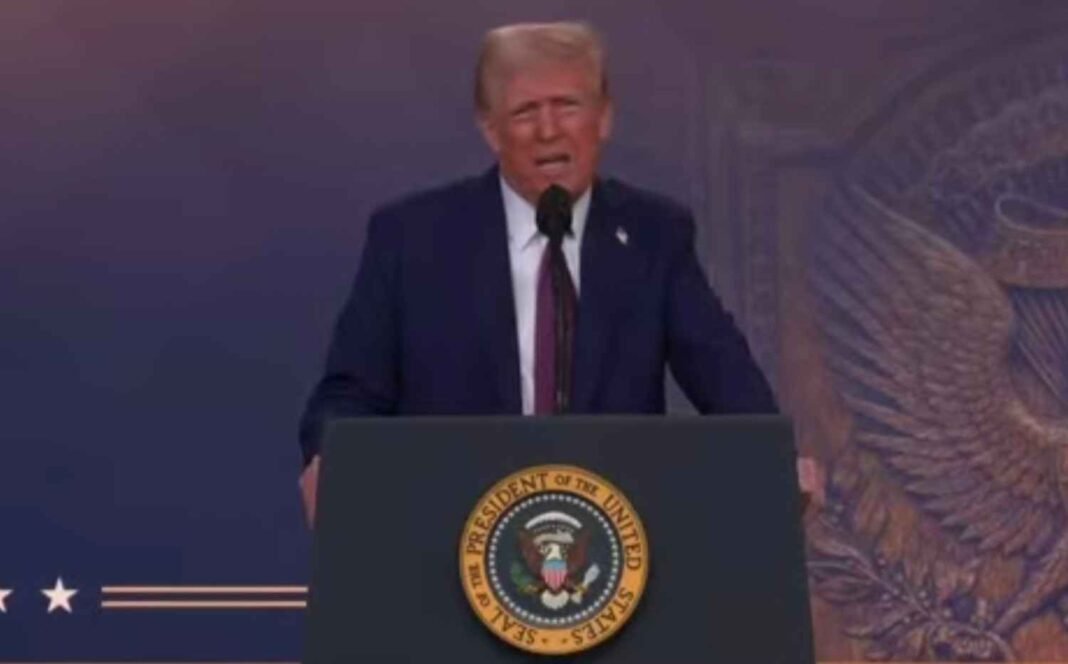In a video connection speech, the US President Donald Trump called on Saudi Arabia and the larger Organization of the Petroleum Exporting Countries (OPEC) to cut oil prices, saying that doing so may immediately end the conflict between Russia and Ukraine.
Trump made audacious statements at the World Economic Forum in Davos, Switzerland, that have the potential to change the global energy scene. Trump expressed dissatisfaction that oil-producing nations had not taken action sooner, highlighting a clear link between the prolonged War and rising oil prices.
Trump’s remarks coincide with escalating global conflicts and economic pressures brought on by the prolonged dispute between Russia and Ukraine. Trump claims that the crisis is being intensified by the high price of oil because Russia gains from increased income, which enables it to continue its military activities.
Trump stated, “If the price came down, the Russia-Ukraine war would end immediately. Right now, the price is high enough that that war will continue.”
Trump believes OPEC, especially Saudi Arabia, might help cut off Russia’s financial lifeline by lowering oil prices, which could lead to a truce or the end of the war.
The price of oil can have far-reaching effects, and it is a vital component of world geopolitics. In addition to criticizing Russia, Trump’s demand that Saudi Arabia cut oil prices also marks a change in American energy strategy.
The necessity of using the United States’ abundant oil and gas resources to boost its economy was also emphasized by Trump, who has frequently called for American energy independence.
The US President’s claim that the war could be ended by cutting oil prices is also indicative of his larger plan to use energy markets to affect international conflicts.
Relationships within the energy market may become even more complicated as a result of Trump’s pressure on Saudi Arabia and other OPEC members to modify oil prices, given their considerable influence over output.








